Humans
Sign up for our newsletter
We summarize the week's scientific breakthroughs every Thursday.
-
 Health & Medicine
Health & MedicineHere’s why COVID-19 vaccines like Pfizer’s need to be kept so cold
Both Pfizer and Moderna built their vaccines on RNA. Freezing them keeps their fragile components from breaking down.
-
 Health & Medicine
Health & MedicineNew Pfizer results show its COVID-19 vaccine is nearly 95% effective
With final results – including showing its vaccine is 94 percent effective in the elderly – Pfizer is poised to request emergency use authorization.
-
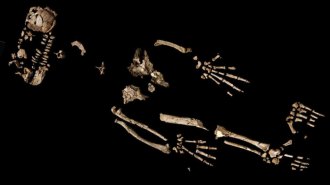 Anthropology
AnthropologyArdi and her discoverers shake up hominid evolution in ‘Fossil Men’
A new book covers the big personalities, field exploits and scientific clashes behind the discovery of the hominid skeleton nicknamed Ardi.
By Bruce Bower -
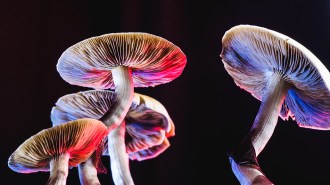 Neuroscience
NeurosciencePsilocybin may help treat depression, a small study finds
Researchers found that a compound in psychedelic mushrooms eased depression symptoms, but larger studies are needed.
-
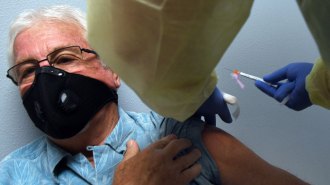 Health & Medicine
Health & MedicineModerna says its COVID-19 vaccine is nearly 95 percent effective
Another coronavirus vaccine appears to be very effective in preventing people from developing COVID-19 symptoms.
-
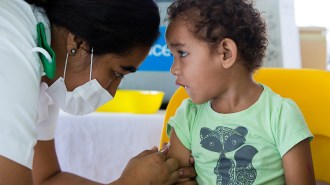 Health & Medicine
Health & MedicineMeasles has come back with a vengeance in the last several years
The steep number of measles cases in 2019 doesn’t bode well for 2020, considering disruptions due to the COVID-19 pandemic.
-
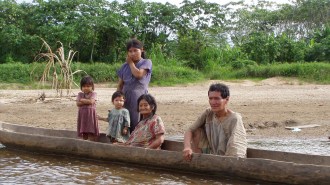 Anthropology
AnthropologyBolivia’s Tsimane people’s average body temperature fell half a degree in 16 years
A new study echoes other research suggesting that people’s average body temperature is lower today than it used to be.
By Sujata Gupta -
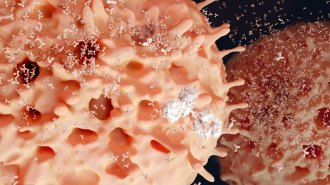 Health & Medicine
Health & MedicineProtecting the brain from infection may start with a gut reaction
In mice, immune cells in the meninges are trained to battle infections in the gut before migrating to the brain.
-
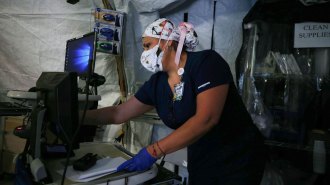 Health & Medicine
Health & MedicineCoronavirus cases are skyrocketing. Here’s what it will take to gain control
Basic public health measures can still curb COVID-19, if everyone does their part.
By Jonathan Lambert and Tina Hesman Saey -
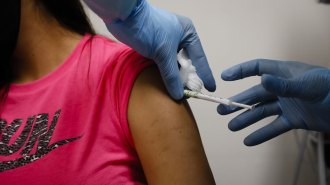 Health & Medicine
Health & MedicinePfizer’s COVID-19 vaccine is 90% effective, preliminary trial data show
An analysis of 94 COVID-19 cases shows that the mRNA-based vaccine can protect people from getting sick, though the trial is ongoing.
-
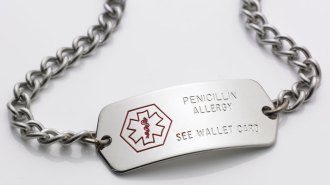 Genetics
GeneticsPenicillin allergies may be linked to one immune system gene
Researchers have located a shared hot spot — on the HLA-B gene — in the immune system in people who say they have penicillin allergies.
-
 Neuroscience
NeuroscienceFDA advisory panel declines to support a controversial Alzheimer’s treatment
The fate of an Alzheimer’s drug, developed by pharmaceutical company Biogen, remains up in the air.